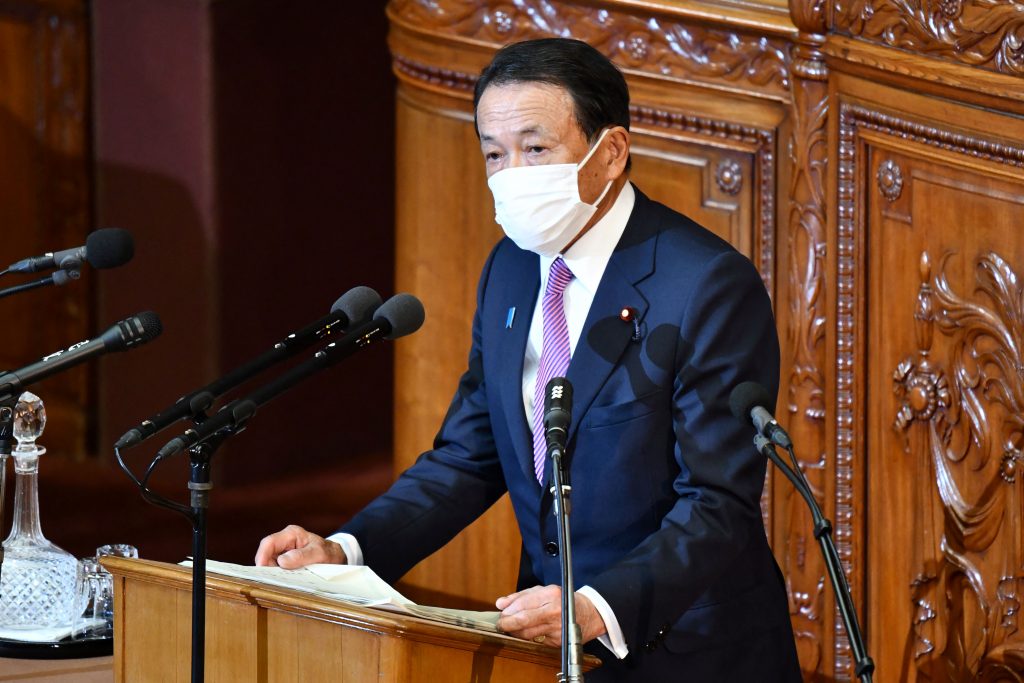
- ARAB NEWS
- 06 Jul 2025

Japan’s government on Tuesday decided to adopt measures to help midsize and large companies boost capital funds, Finance Minister Taro Aso said, in a move aimed at backing restaurants and lodging businesses hit hard by coronavirus restrictions.
The government’s response to corporate financing in the pandemic has so far mainly taken aim at small firms with actions such as providing no-interest and no-collateral loans.
However, the prolonged pandemic has raised the need not only to respond to short-term financing demand but also to provide capital for medium and large firms to reinforce their financial bases, government officials said.
The government also decided on Tuesday to spend about 2.2 trillion yen ($20.21 billion) in coronavirus emergency reserves set aside in this fiscal year’s budget to help low-income families with children and support businesses that are shortening their hours in accordance with pandemic-related restrictions.
“By steadily carrying out these measures, we’ll make sure to support restaurant and lodging businesses that hire many non-regular workers” such as part-timers and contract workers, Aso told reporters after a cabinet meeting.
The new loan programme will allow government-backed lenders such as the Development Bank of Japan and the Shoko Chukin Bank to provide subordinated loans and preferred shares to companies in the restaurant, lodging and other industries.
The move signals a departure from the current practice, which does not allow government-affiliated lenders to provide such financing without coordinating with private lenders.
Under the new programme, government-backed lenders are allowed to provide subordinated loans to medium and large companies with interest rates around 1% for an initial three years, compared to 5% or more currently available in many cases.
Flexible lending by the state-backed lenders should help companies boost their financial footing, allowing them to borrow money from banks more easily and avoid bankruptcies.
The latest move underscores policymakers’ worry that a prolonged pandemic and a delay in the economic recovery could trigger bankruptcies among medium and large firms as well as small ones.
COVID-related bankruptcies totalled 1,150 as of March 12, with bars and restaurants accounting for 186, and hotels and inns making up 81, according to Teikoku Databank, a private credit research firm.
“What’s important is to do the utmost to prevent the virus spread and support jobs and livelihoods in dealing with the coronavirus,” Aso said. “It’s true the current public finances are deteriorating … but we are not considering tax hike now.”
Reuters